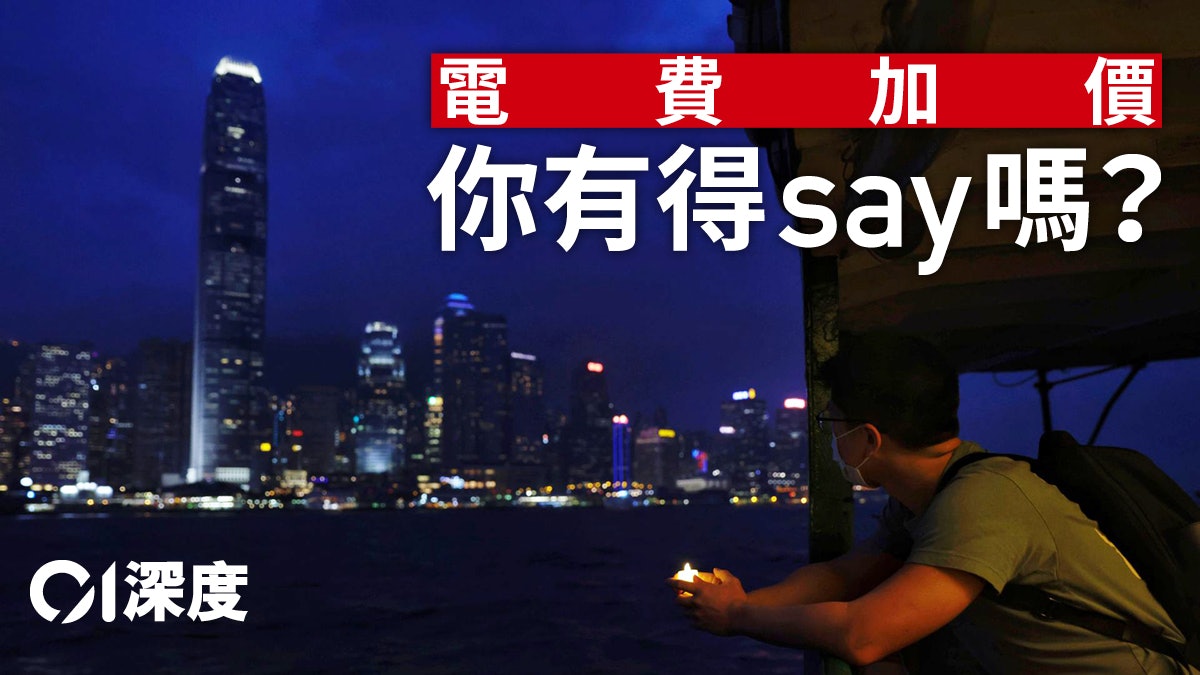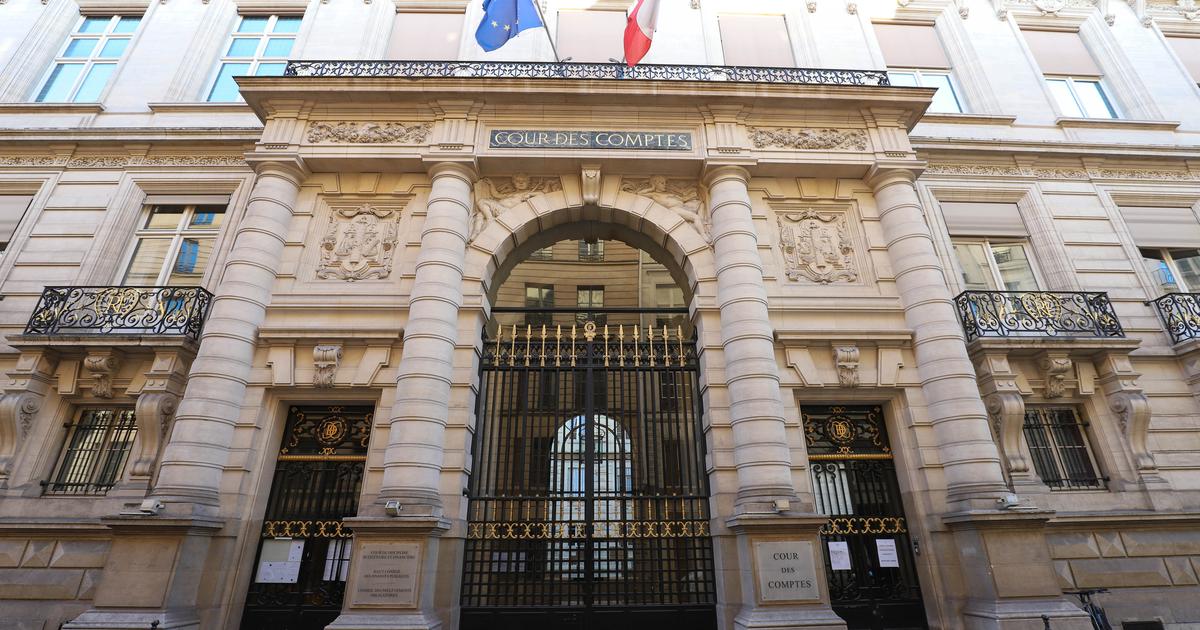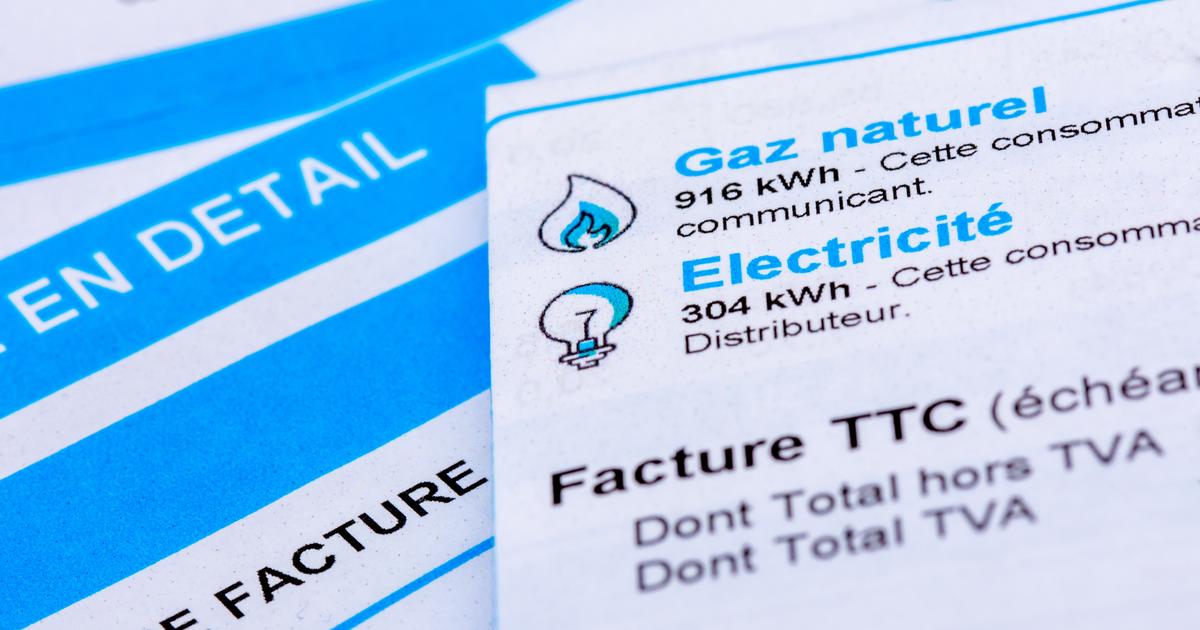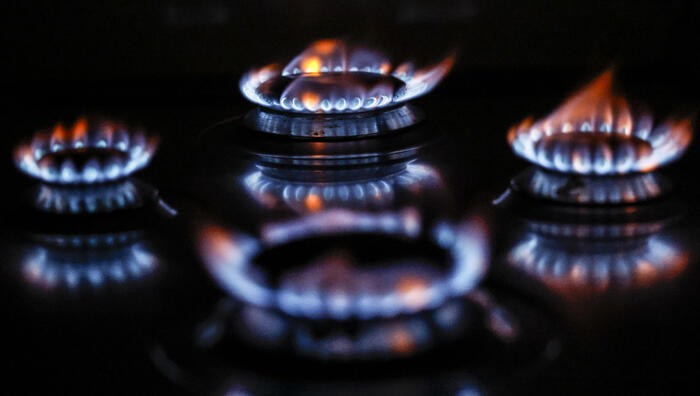The power companies CLP and HK Electric will increase electricity tariffs next year by 20% and 45% year-on-year respectively, which has caused an uproar among Hong Kong residents and sparked discussions on offering rebate subsidies, reviewing the tariff increase mechanism, opening up the electricity market, adjusting the energy structure, etc. However, the two power companies have no intention of withdrawing the fare increase arrangement.
The incident has come to an end, but there are three major issues worthy of social consideration: First, are the two power companies general enterprises or public utilities?
What social responsibility should we take?
Second, what role does the government need to play?
How should a balance be struck between "profit protection" and "profit control"?
Finally, as the public who has no other power options, do they have the right to know, monitor and negotiate on the power industry?
The power companies CLP and HK Electric will increase electricity tariffs next year, with year-on-year increases of 20% and 45% respectively, causing an uproar among Hong Kong citizens.
(File photo/photo by Huang Baoying)
Question 1:
Are the two power companies private companies or public utilities?
What social responsibility should we take?
This increase was the highest in previous years. Both CLP and Hongkong Electric explained that the soaring international energy prices have led to rising costs. Without violating the "Scheme of Control Agreement" ("Agreement") that allows the company to earn 8% of the profit, It is inevitable that there will be large fluctuations in electricity charges, and the two power companies have made great efforts to provide special rebates or subsidies.
The fare increase caused an uproar among the public. There are two main voices of opposition: first, the Hong Kong economy has not recovered and international inflationary pressures continue. Electricity is not an ordinary private enterprise but a public utility. It monopolizes the electricity market with exclusive use of public resources. When adjusting electricity tariffs, social impact must be considered, and it should not be too big to make money.
Xie Zhanhuan, director of the Bureau of Environment and Ecology, who is in charge of supervising the two power plants, put on a "powerless" look, saying that the price increase of the two power plants complied with the provisions of the "Agreement" and that the authorities must "respect the spirit of the contract." The introduction of external power supply will increase market competition and reduce electricity charges. However, the technical issues are complex and will take time to study.
In fact, public infrastructure services such as electricity, water, gas, transportation, and communications have always been classic cases of “natural monopoly” in economics.
Since laying power grids and other infrastructure in the early stage is expensive, the marginal cost will decrease with the increase of users after the service is put into service. Therefore, if there are multiple competitors in the same area, it is inevitable to repeat the infrastructure, resulting in waste of resources.
Therefore, the school of thought that believes in the "invisible hand" believes that the electric industry is not conducive to the investment of competitors and forms a natural monopoly.
The infrastructure construction such as laying the power grid in the early stage of the electric industry is expensive, and the marginal cost will decrease with the increase of users after the service is put into service. Therefore, if there are multiple competitors in the same area, it is inevitable to repeat infrastructure construction, resulting in waste of resources.
(Queensland Competition Authority, 2019)
However, electricity is crucial to people's livelihood. Looking around the world, governments around the world have either nationalized the power industry or strictly regulated privately owned power companies.
Because "electricity" is a public resource, that is, power companies obtain private benefits through public resources, so the government has the responsibility to provide appropriate regulations, including price or profit restrictions, to ensure service quality and public interest.
Hong Kong is served by two private companies with a long history and strong strength - CLP Power Co., Ltd. and Hongkong Electric Co., Ltd., among which CLP is one of the largest private power companies in Asia. Kadoorie was founded in Hong Kong, supplying electricity to Kowloon, the New Territories and most of the outlying islands; HK Electric was put into service as early as 1889, and was owned by the richest man Li Ka-shing in the 1980s, supplying electricity to Hong Kong Island, Po Toi Island, Ap Lei Chau and Lamma Island.
The two power companies operate in a "Vertical Integration" (Vertical Integration) model. Each owns and operates the entire power supply chain in a designated service area, including power plants, transmission and distribution networks, and provides services directly to users in designated areas.
Hong Kong believes in a free economy, and there is no law that clearly stipulates the rights or responsibilities of power companies. However, the British Hong Kong government has already signed the "Control Plan Agreement" with CLP and HK Electric in 1964 and 1978, respectively. The basic rights and responsibilities of power companies, profit calculation, electricity fee mechanism, etc., as well as government supervision of power companies and financial arrangements related to power, so as to ensure that power companies provide reliable power services at reasonable prices and ensure that shareholders earn a reasonable return on their investment.
In other words, the "Agreement" not only ensures but also limits the "permitted profits" of the power companies; and with the development of society, when the civil society grows and public interests are valued, the permitted returns of the two power companies also continue to fall—relatively The big change was that when the "Agreement" was renewed in 2008, it dropped from 13.5% that had been maintained for many years to 9.99%, and it dropped again to 8% in 2017; and the validity period of the new "Agreement" was also extended from 10 years to 15 years, until the end of 2033.
The net electricity fee consists of "basic electricity fee" and "fuel adjustment fee".
(HK Electric Tariff Information Booklet)
Question 2:
Does the government need to regulate?
How to balance the "protection" and "control" of profits?
The public may wonder why the government wants to ensure and limit the "permitted profits" of the power companies through the "Agreement"?
Chen Shaoxiong, a member of the Legislative Council Election Committee who is a senior adviser to CLP Power, explained to Hong Kong 01: "If the tens of billions of infrastructure investment in the power industry is paid by the government (state-owned), the operating efficiency may not be high; on the contrary, if Let private companies make profits, pursue profits and efficiency through business models, and let the government sit back and enjoy the benefits, so that the government, society, and companies can win. Therefore, the "Scheme of Control Agreement" is still effective today!"
It is undeniable that the reliability of the power supply of the two power companies maintains a world-class level of "5 nines" every year - 99.999%, which is equivalent to a power outage of less than one minute within a year, which is superior to many major cities in the world.
However, the community is not without controversy over the Agreement.
First of all, the "allowable profit" directly affects the amount of
electricity bills paid by users. How much
should it be considered reasonable?
The net electricity fee is composed of "basic electricity fee" and "fuel adjustment fee"
(see the figure above)
. The former is obtained by dividing the sum of the annual forecast standard fuel cost, operating cost and permitted profit by the forecasted electricity sales; the latter is based on the actual reimbursement mechanism. Directly borne by the customer on a monthly basis, the two power companies will not get any profit, and the "Agreement" also has a "fuel price adjustment clause account" to reflect the difference between the actual fuel cost and the standard fuel cost, and the difference will be passed through Fuel adjustment fees or rebates are charged to or given back to customers.
Taking the first ten months of this year as an example, due to the rise in fuel costs, although the "fuel adjustment fees" of CLP and HK Electric have soared by 35.2% and 160% respectively, in fact, the two power companies still need to pay in advance, resulting in the "fuel price adjustment clause". The "basic electricity rate" has fallen into a negative number, and now the "basic electricity rate" has been greatly adjusted mainly based on operating costs and permitted profits.
Secondly, the "Agreement" requires the establishment of the "Electricity Tariff Stabilization Fund"
(see the figure below)
, can it effectively use the surplus other than the "permitted profit" to reduce the pressure on users?
According to the "Agreement", whenever the net income earned by the electric power company exceeds the 8% stipulated in the "permitted profit", it should be transferred to the "Electricity Rate Stabilization Fund", but only when the fund balance cap has been rolled over to the annual Only 5% of the revenue from electricity sales is required to call back the relevant reserves to alleviate the increase in electricity tariffs.
Taking the big price increase of the two power companies as an example, even though the two power companies have used part of the "Tariff Stabilization Fund", they still recorded a surplus of 390 million yuan and 276 million yuan.
Whenever the electricity company earns more than 8% of the net income stipulated in the "allowable profit", it should be transferred to the "electricity rate stabilization fund", but only when the fund balance limit has rolled over to 5% of the annual electricity sales income. %, it is necessary to call back the relevant reserves to alleviate the increase in electricity tariffs.
(HK Electric Tariff Information Booklet)
Third, is the reward and punishment mechanism (see the table below)
established in the Agreement based on the performance of the two power companies
divorced from reality, and should it be reviewed?
According to the criteria of "power supply reliability" and "power supply recovery time": if the annual power supply reliability is lower than 99.9920%, 0.015% of the permitted return will be deducted as a penalty.
In June this year, the fire at the CLP Cable Bridge in Yuen Long caused a total power outage in Tuen Yuen Tin for nearly 13 hours, that is, up to 770 minutes. However, since the mechanism was capped at 85 minutes, only 0.015% of the profit will be deducted at most, and the mechanism is only for the whole year Considering the performance, there is no single accident rule, which is considered extremely unreasonable.
Fourth, is it inappropriate to calculate the permitted profit based on the average net value of fixed assets?
The "Agreement" encourages power companies to take more environmental protection measures, and treats the relevant infrastructure investment as a net value of fixed assets, which can be included in operating costs and shared by users.
The reason why the new "Agreement" extends the contract period to 15 years is to allow the two power companies to invest in more large-scale long-term carbon reduction infrastructure projects to match the government's goal of "carbon neutrality" by 2050; the two power companies are also actively developing Clean energy technologies such as renewable energy and green hydrogen energy to support energy transformation, such as CLP's plan to phase out coal-fired units at Castle Peak Power Plant, construction of offshore liquefied natural gas receiving terminals, and geotechnical research for offshore wind farm projects in southeast waters survey work.
However, some public opinion believes that the "Agreement" has caused "excessive investment" in disguise, resulting in damage to the interests of users.
Li Huaming, a former member of the Legislative Council of the Democratic Party, said with a smile that the "Agreement" is just a "profit guarantee plan", which has long been criticized.
Because Hong Kong’s electrical industry has passed its initial stage of development, it may not be necessary to add too much new electrical infrastructure. In addition, most local industrial activities have retreated. It is estimated that electricity consumption will not soar. It is unreasonable to continue to calculate profits based on fixed assets.
According to the criteria of "power supply reliability" and "power supply recovery time": if the annual power supply reliability is lower than 99.9920%, 0.015% of the permitted return will be deducted as a penalty.
(Scheme of Control Agreement)
Question 3: Who is involved in decision-making?
Who will monitor the two electricity for us?
Have the two power companies expanded their assets or made unnecessary investments?
Although outside opinions are divided, only the government has the right to speak.
According to the "Agreement", the two power companies must submit to the government a development plan for the expansion of the power supply system and obtain the approval of the Executive Council before it can be implemented; however, although the adjustment of the electricity fee must be explained to the government and the parliament, it does not need to be agreed by both parties.
Chen Shaoxiong said that the government will supervise the operation of the power company through the annual audit review (Auditing Review). Documents" were handed over to the government and an independent consultant team for strict auditing to ensure that every penny spent by the two power plants is appropriate.
CLP Power Senior Advisor and Member of the Legislative Council (Election Committee) Chen Shaoxiong believes that the "Scheme of Control Agreement" effectively achieves three wins: the government wins, the society wins, and the company wins.
(Photo by Chen Weici)
However, the public is unavoidably puzzled. In the past ten years, the fixed assets of the two power companies have increased by tens of billions of yuan. What are the approval standards?
Has the power company consulted the public on its future development plans?
In this regard, Di Zhiyuan, a social welfare member of the Legislative Council and New Thinking, believes that the parliament should participate in the deliberation process.
He pointed out that the current government and the two power companies mainly handle various audit and review matters through administrative procedures, and the Legislative Council lacks sufficient information, so it is difficult to discuss, let alone open public participation in monitoring.
Di Zhiyuan lamented: "The government knows that members of parliament will definitely object, so let's just let you finish the noise and go through the procedures; the power company also knows that we will object, so everyone puts on a "show" and the most important thing is to take a good look at the public relations. , packaged to the point that the power company not only earns profits but also is willing to share the profits, giving some small favors to the citizens.”
On the one hand, members of the legislature and the public have little to say about the profit calculation, asset investment, and future development plans of the two power companies, and the transparency of relevant information is also limited, because the two power companies always say that "information involving commercial secrets may damage the two power companies." Negotiation ability to negotiate prices and transaction volumes with suppliers” on the grounds of refusal to disclose, making it impossible for the outside world to monitor.
But on the other hand, due to the complexity of the operation of public utilities such as electricity, the content of the "Agreement" is beyond the basic understanding of many publics. slaughtered by people".
Then, apart from the need to monitor the two power plants on behalf of the public, does the government also have the responsibility to empower the public to jointly supervise the two power plants in the public interest?
According to the "Agreement", the two power companies must submit to the government a development plan for the expansion of the power supply system and obtain the approval of the Executive Council before it can be implemented; however, although the adjustment of the electricity fee must be explained to the government and the parliament, it does not need to be agreed by both parties.
(CLP Brochure)














/cloudfront-eu-central-1.images.arcpublishing.com/prisa/EXJQILQR5QI7OMVRTERD7AEZAU.jpg)